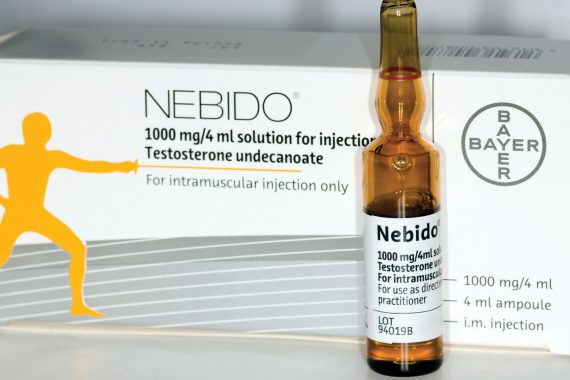Exclusive GPs are warning that the so-called ‘male menopause’ is being wrongly medicalised, following an analysis of figures that show a continued rise in testosterone prescribing.
They warn that much of this increase has been due to extra demand driven by more sophisticated marketing of the drug, including claims that it will give men their ‘oomph’ back.
As a result, symptoms such as fatigue, erectile dysfunction, reduced physical endurance and mood disturbance are wrongly being put down to age-related decreasing testosterone, often labelled the ‘male menopause’.
However, research shows the decline in testosterone – termed ‘late-onset hypogonadism’ – is usually caused by underlying factors, such as obesity and diabetes in older age.
A Pulse analysis of prescribing figures show that GP prescribing of testosterone has risen 20% since 2012, costing the NHS £20m a year.
Some GPs have expressed concern this ongoing trend could put men at risk.
It continues a shift that has seen prescriptions more than double in primary care over the past decade. The overall number of testosterone prescription items dispensed has increased since 2012, with two different drugs – testosterone and of testosterone undecanoate – among the top ten most prescribed controlled drugs for the first time.
Royal College of GPs prescribing advisor and North Wales GP Dr Martin Duerden said he is concerned testosterone is increasingly being used in the UK to treat ‘the male menopause’ among those with reduced energy and libido, ‘rather like oestrogen has been used in women as an “anti-ageing” product in the past’.
He added: ‘I think we should use these products very cautiously unless there are clear clinical explanations for hypogonadism other than age.’
But Professor Mike Kirby, GP and visiting professor to the Prostate Centre, London, says: ‘Since the introduction of Viagra, and more interest in erectile problems, more men are being tested for testosterone deficiency – that’s been a major driver of it.’
He adds the rise shows GPs responding to greater awareness of the problem of testosterone deficiency, and to guidelines promoting testing and treatment of it in men presenting with erectile dysfunction, such as those from the British Society of Sexual Medicine (BSSM).
However, there is still contention around the appropriateness of such recommendations, with some experts advising against treatment in these groups.
Dr Andrew Green, prescribing spokesperson for the BMA’s General Practitioners Committee and a GP in East Yorkshire, says: ‘Patients with non-specific symptoms or indeed just the normal changes in sexual function that happen with age are influenced by articles in magazines and request testing, which can then result in expectation to prescribe for low-normal readings.’
Pulse July survey
Take our July 2025 survey to potentially win £1.000 worth of tokens












